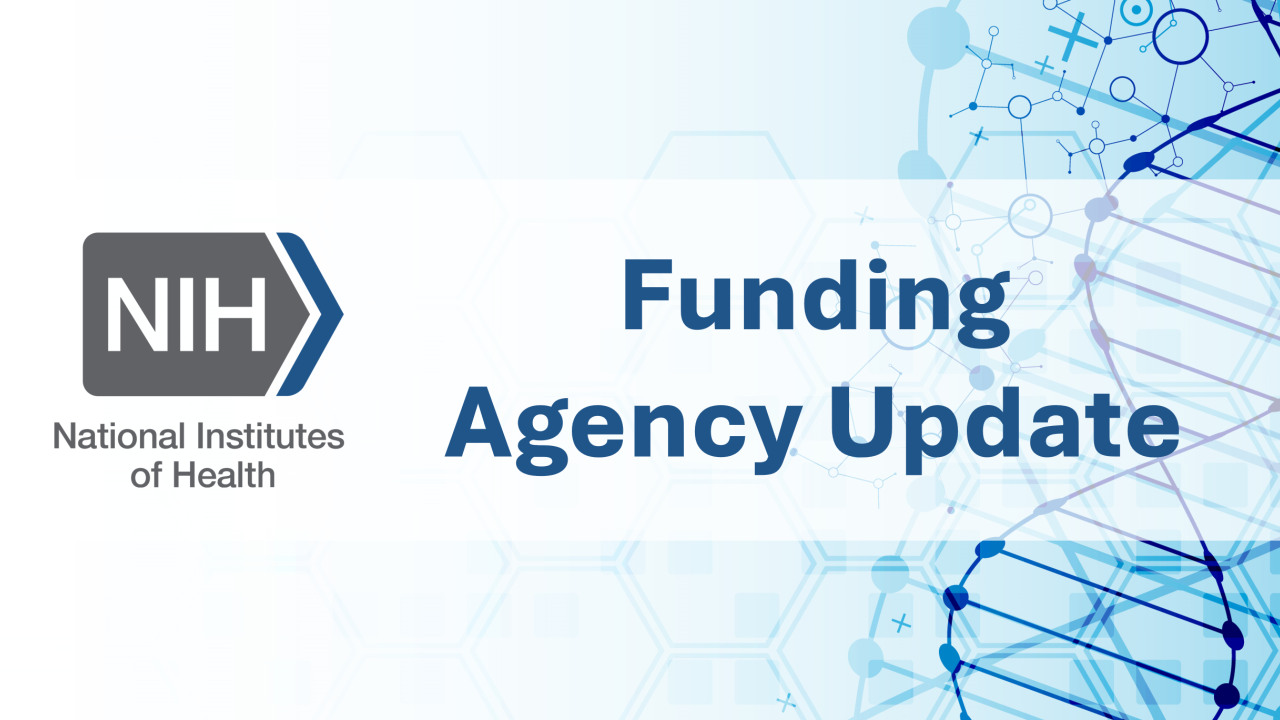
NIH Update: Limits on yearly grant submissions
NIH will accept up to 6 submissions per year per PI
Quick Summary
- NIH says this policy is designed to address an increasing number of low-quality proposals generated with the help of artificial intelligence tools.
- If you are likely to reach your 6-application limit, carefully consider who is listed as PI/MPI on each grant proposal to prevent over-commitment of single PIs.
- We also recommend diversifying your portfolio to include non-NIH sources and being mindful of your use of AI in grant proposals.
NIH recently announced a plan to limit PIs to submitting no more than 6 grant applications per calendar year, including new, renewal, resubmission or revision applications. What does that mean for UC Davis investigators?
What you should know:
Why did NIH implement this policy?
The NIH “recently observed instances of Principal Investigators submitting large numbers of applications, some of which may have been generated with AI tools.” The announcement noted that AI tools enabled some PIs “to submit more than 40 distinct applications in a single application submission round.” The new policy ostensibly prevents investigators from overwhelming the NIH review process, especially with low-quality applications produced by AI.
Which types of applications count toward this limit?
This policy applies to all research grants (including programs and centers) submitted as new, renewal, resubmission and reapplication. Project or core leads on a center or program project grant are considered PIs on an application. The policy does NOT include training grants (T series) or conference grants. If you are serving as PI on a subaward to another institution, but are NOT considered an MPI in the eyes of NIH (i.e., you are an investigator rather than MPI), then your role will not count toward your limit. Importantly, the 6-application limit only applies to submissions per calendar year; there is no limit on the number of active awards on which you are PI at a given time.
How does this impact UC Davis researchers?
There is definite concern that this policy will hurt investigators who rely on NIH funding to support their team, disproportionately impacting employees whose salaries are primarily extramurally funded (sometimes called “soft-funded”). This is especially concerning if sponsors are funding fewer grants and contracts overall, and for lower dollar amounts, because investigators will need to submit more applications to ensure existing projects and personnel are continuously funded. In FY2025, approximately two dozen UC Davis investigators submitted more than 6 grants to NIH as PI.
What can you do?
There are several actions you can take in anticipation of this policy change:
- Make every proposal you submit as strong as possible to ensure the highest probability of success. Limiting the number of applications a PI can submit to NIH per year means that each submission will be more valuable. Take advantage of the grant-writing resources available in the UC Davis Research Development Toolbox and reach out to the Proposal Development Services (PDS) team for guidance on proposal development (PDS@ucdavis.edu).
- Carefully consider your role on NIH proposals based on the scope of the project and the contributions of the investigators. Being a co-investigator (as opposed to PI) may be sufficient for senior investigators contributing resources and knowledge but not conducting a large portion of the work. When appropriate, non-faculty investigators can be granted PI status and assume leadership responsibilities on projects they design and conduct. For more guidance, reach out to the PDS team to discuss options (PDS@ucdavis.edu).
- Be mindful of your use of AI in grant writing. Even if you only use AI as a tool during the proposal development process, ensure the final product is in your own words. Be wary of AI-suggested wording changes during the final edit as these may raise flags during an AI-scanned application intake.
- Discover ways to diversify your funding portfolio by subscribing to the UC Davis Weekly Funding Newsletter and using the Pivot database of funding opportunities. Contact Strategic Initiatives and Research Funding Director Ana Lucia Cordova (anacordova@ucdavis.edu) to discuss medically relevant programs at the Department of Defense, and reach out to the UC Davis Foundation and Corporate Engagement team for guidance on applying for private-sector funding.
For more information:
NIH Notice: https://grants.nih.gov/grants/guide/notice-files/NOT-OD-25-132.html
Questions?
Contact Sheryl Soucy-Lubell, Director, Proposal Development Services: slslubell@ucdavis.edu; 530-754-7725.